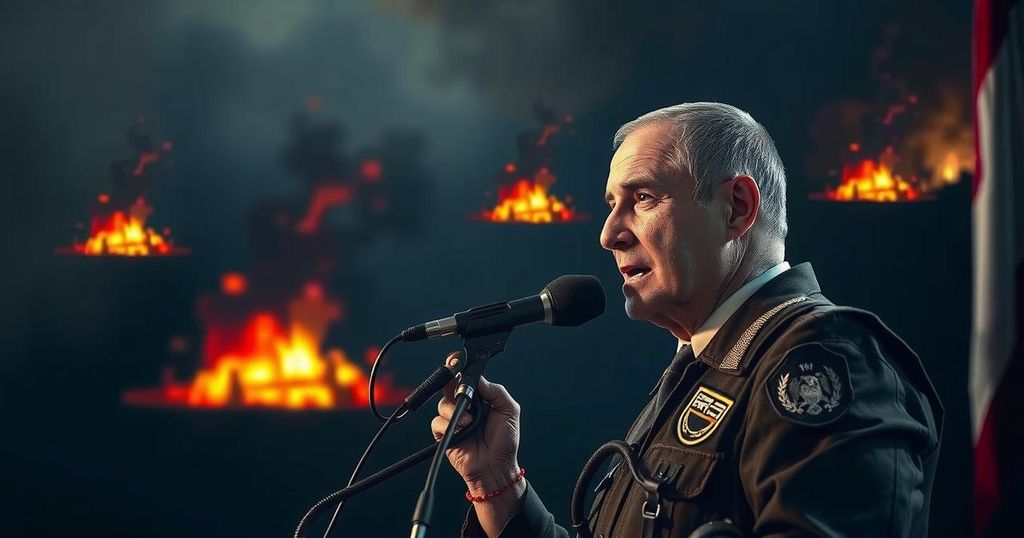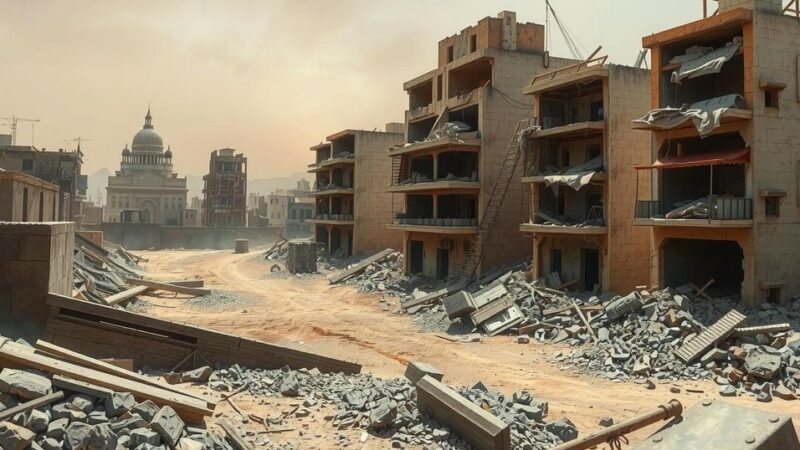Israel’s Defense Minister Israel Katz has announced there will be no ceasefire in Lebanon, emphasizing ongoing military operations against Hezbollah. This stands in contrast to earlier claims made by Foreign Minister Gideon Saar regarding potential progress in ceasefire discussions. The conflict has resulted in over 3,000 deaths in Lebanon and widespread displacement, with significant humanitarian challenges persisting.
Israel Katz, Israel’s newly appointed Minister of Defense, made a definitive statement rejecting any ceasefire in Lebanon, asserting, “there will be no ceasefire and there will be no respite”. Katz emphasized that Israel would persist in military actions against Hezbollah, aiming to disarm the group and secure the safety of northern residents. His comments come amidst an ongoing humanitarian crisis resulting in over 3,000 deaths since the escalation began on October 7, 2023, further displacing large numbers of people within Lebanon and Israel. Concurrently, Katz’s stance sharply contrasts prior remarks by Foreign Minister Gideon Saar, who suggested possible progress in ceasefire discussions. This divergence highlights internal governmental discord as Israel faces significant international scrutiny and mounting humanitarian concerns. Lebanon’s Prime Minister Najib Mikati, speaking at a recent summit in Riyadh, characterized the situation as an “unprecedented” crisis threatening Lebanon’s stability. Amidst this turmoil, Iranian officials expressed hope that a shift in U.S. leadership would lead to a cessation of Israeli military actions against regional adversaries. The humanitarian situation in Gaza remains dire, with significant casualties reported, while the flow of aid has dwindled significantly despite international pressure for increased support.
The ongoing conflict between Israel and militant groups in Lebanon, particularly Hezbollah, has seen intensified military operations that have escalated since October 7, 2023. The Israeli government, under Prime Minister Benjamin Netanyahu, has entered a tumultuous phase following internal disagreements that resulted in the recent appointment of Israel Katz as Defense Minister. The conflict has led to devastating casualties in both Lebanon and Gaza, with rising calls for humanitarian assistance amidst escalating military action. This situation presents complex geopolitical implications, notably involving Iran, the United States, and affected regional countries, as Israel faces significant scrutiny over its military strategies and humanitarian impact.
Israel Katz’s rejection of a ceasefire and commitment to military engagement against Hezbollah highlights the ongoing tensions and severe humanitarian crisis in Lebanon. The recent shifts in Israel’s governmental approach signify a divided stance on conflict resolution, complicating peace efforts amid overwhelming humanitarian needs. As the situation develops, the implications for both regional stability and international diplomatic relations remain significant.
Original Source: www.theguardian.com






